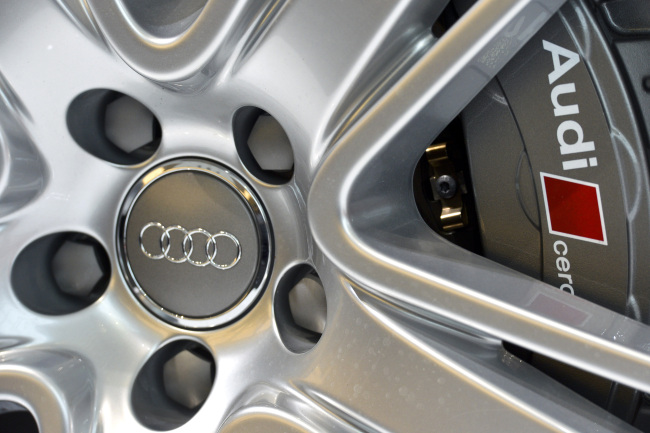Volkswagen AG’s Audi posted the fastest pace of sales growth among German luxury marques in China last month after it sold more sport-utility vehicles.
Audi deliveries rose 13 percent to 38,710 vehicles in China and Hong Kong in April, the Ingolstadt, Germany-based company said on its website. Bayerische Motoren Werke AG, the world’s largest luxury automaker, reported an 11 percent gain to 30,311 units in China, the automaker said on its website. Daimler AG’s Mercedes-Benz said sales increased 11 percent to 16,241 units in China and Hong Kong.
Automakers such as Nissan Motor Co.’s Infiniti and General Motors Co.’s Cadillac are beefing up their networks in an attempt to win more customers in China’s premium car segment and challenge the dominance of the three German companies that collectively held more than 70 percent market share last year. In China, Audi cornered 29.6 percent of the market, BMW had 23.6 percent, while Mercedes-Benz took 20.6 percent in 2012, according to researcher IHS Global Insight.
 |
The Audi logo is seen on the ceramic brake of an Audi RS7 Quattro automobile. (Bloomberg) |
Wholesale deliveries of cars, multipurpose and sport-utility vehicles climbed 13 percent to 1.44 million units in April, according to state-backed China Association of Automobile Manufacturers.
Of the three German luxury automakers, Audi is the only company still reporting double-digit growth every month this year. Still, the pace slowed in April, from the 44 percent expansion Audi posted in the same month a year earlier.
Deliveries of Audi in the first four months rose 14 percent, Mercedes-Benz posted a 6.6 percent decline and BMW reported an 8.6 percent increase. BMW declined to provide sales figures for Hong Kong, in an e-mailed response.
“The trend of pursuing high-end products is reined in, in the whole society,” Dong Yang, secretary general of China’s auto association, told reporters in Beijing on May. 9. “Also there were too many imported cars last year, which put more pressure on the pricing level.”
BMW’s China deliveries in April slowed, compared with a 31 percent increase a year earlier. The automaker expects to post “low double-digit growth” this year in China and gain market share in the Asian nation, Karsten Engel, the company’s head in the country said last month in Shanghai.
(Bloomberg)







![[Weekender] Korea's traditional sauce culture gains global recognition](http://res.heraldm.com/phpwas/restmb_idxmake.php?idx=644&simg=/content/image/2024/11/21/20241121050153_0.jpg)
